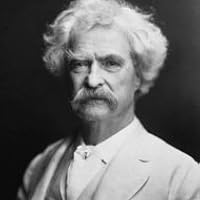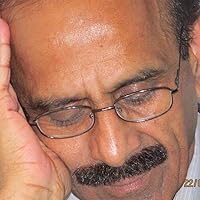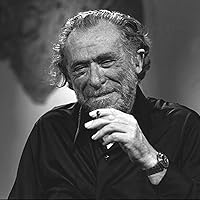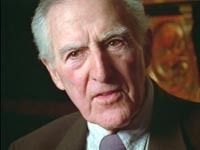Review Quotes
Quotes tagged as "review"
Showing 1-30 of 90

“My congratulations to you, sir. Your manuscript is both good and original; but the part that is good is not original, and the part that is original is not good. ”
―
―

“Most writers regard the truth as their most valuable possession, and therefore are economical in its use.”
―
―

“By assembling in our mind all the consequential facts we have lived through and by reviewing, appraising or sometimes idealizing the numerous key points of the past, authenticity may gradually mutate and actuality decay at last. At that point in time we are to experience a maimed factuality. ("Labyrinth of the mind")”
―
―

“With the Black Company series Glen Cook single-handedly changed the face of fantasy—something a lot of people didn’t notice and maybe still don’t. He brought the story down to a human level, dispensing with the cliché archetypes of princes, kings, and evil sorcerers. Reading his stuff was like reading Vietnam War fiction on peyote.”
―
―

“In many a situation, the images that words hide while walking forth are the desired meaning of particular words rather than the word itself. Those words sing and dance by coming out of the paper.”
―
―

“Nature fits all her children with something to do, he who would write and can't write, can surely review.”
―
―

“It's a very remarkable story."
"Remarkable's a well-chosen word. It doesn't give you away.”
― Random Harvest
"Remarkable's a well-chosen word. It doesn't give you away.”
― Random Harvest

“This book (Jarod Kintz's book) is trash. I mean, I assume it is, because that's where I found it while scrounging for lunch. However, I must admit that I haven't read it. I would have, but I am homeless, mainly due to my illiteracy (though Big Government, Keynesian monetary policy, and my struggle with alcoholism certainly played a large role).”
―
―

“Monitoring and reviewing are the two paddles of the decision making cycle.”
― How Leaders Decide: Tackling Biases and Risks in Decision Making
― How Leaders Decide: Tackling Biases and Risks in Decision Making

“There are more reviews than views available.”
― Ignited Minds: Unleashing the Power Within India
― Ignited Minds: Unleashing the Power Within India

“El Lindo tastes like the line from that famous murder mystery movie “Rambo,” when Nicolas Cage rips off his tuxedo and says, “I may be a lot of things, but I ain’t a man to call Taco Bell Mexican cuisine." I love a good romance.”
― 94,000 Wasps in a Trench Coat
― 94,000 Wasps in a Trench Coat

“A review of whatever subject by whoever is neither a certificate nor certification; sure, it is only one's opinion or appreciation, whether good or bad, and whether others agree or disagree with it.”
―
―

“Review the place where let you to stay at the same spot or will return you to backward if you don't have any problems making sure you are in an inappropriate place.”
―
―

“...the desire that no daughter of mine should ever be in a position to be able to write BY GRAND CENTRAL STATION I SAT DOWN AND WEPT -- exquisite prose though it might contain -- 'BY GRAND CENTRAL STATION I TORE OFF HIS BALLS' would be more like it, I should hope.)”
―
―

“...the desire that no daughter of mine should ever be in a position to be able to write BY GRAND CENTRAL STATION I SAT DOWN AND WEPT -- exquisite prose though it might contain. ('BY GRAND CENTRAL STATION I TORE OFF HIS BALLS' would be more like it, I should hope.)”
―
―

“One star. Story had absolutely no depth and narrator sounded like he'd rather be kicked in the balls but he was pretty hot so I'll give him a star.”
― How to Defy a Vampire
― How to Defy a Vampire
“The Artist's Drawing Book by Katy Lipscomb and Tyler Fisher is filled with numerous art lessons for beginner artists. A self-motivated individual will likely find this an appealing way to learn art, though I think teachers might consider this useful in middle and high school classrooms as well. Seventeen different lessons are presented in this book, and each one builds on the other, helping to lay a strong art foundation. You could buy different art books that may have some or most of these lessons, though I’ve not seen any that provide the sort of succinct and precise approach that this one does. Each lesson is carefully thought out and needs to be practiced by the reader. The text is packed to the brim with information essential to succeed in art. That’s what makes this book so valuable.
The lessons are intended to be learned by the budding artist, and so some may take days (or longer) to complete until the user masters the skill. The important thing is not to be in a hurry while working your way through this book. You might want to buy a sketchbook to go along with this, so you can keep your artwork in one place. You might also want to purchase a copy of this book for a friend, so you can practice your art skills together. After teaching art in school for 16 years (grades K-12), I fully understand how The Artist's Drawing Book by Katy Lipscomb and Tyler Fisher is an essential tool for those beginning in art. If you are serious about learning this fascinating subject, then this book is for you. This is an outstanding piece of work.”
―
The lessons are intended to be learned by the budding artist, and so some may take days (or longer) to complete until the user masters the skill. The important thing is not to be in a hurry while working your way through this book. You might want to buy a sketchbook to go along with this, so you can keep your artwork in one place. You might also want to purchase a copy of this book for a friend, so you can practice your art skills together. After teaching art in school for 16 years (grades K-12), I fully understand how The Artist's Drawing Book by Katy Lipscomb and Tyler Fisher is an essential tool for those beginning in art. If you are serious about learning this fascinating subject, then this book is for you. This is an outstanding piece of work.”
―
“Якби ми спробували усунути шум в освіті, нам довелося б витратити багато коштів. Оцінювання учнів з боку вчителів зашумлене, але не можна посадити п’ять педагогів оцінювати одну учнівську роботу.”
― Noise: A Flaw in Human Judgment
― Noise: A Flaw in Human Judgment
“See
not the public broadcaster do androids dream
for Robin L Harvey review of Rain on My Skin by Rosemary Clewes”
―
not the public broadcaster do androids dream
for Robin L Harvey review of Rain on My Skin by Rosemary Clewes”
―

“Passion comes from feeling like you are a part of something that you believe in, something bigger than yourself. If people do not trust that a company is organized to advance the WHY, then the passion is diluted. Without managed trust, people will show up to do their jobs and they will worry primarily about themselves. This is the root of office politics—people acting within the system for self-gain often at the expense of others, even the company. If a company doesn't manage trust, then those working for it will not trust the company, and self-interest becomes the overwhelming motivation.”
― Start with Why
― Start with Why
“The violence of Jim Crow has given way to craftier present-day methods of disenfranchising marginalized communities, according to this stirring history of American voting rights.
Thomas begins by recapping laws that historically prevented Black people in segregated Southern states from voting, including exorbitant poll taxes and absurdly complicated “literacy” tests required of Black would-be voters but not white voters. More brutal methods were also used, the author notes; Black Southerners who tried to register to vote were often fired, evicted, arrested, beaten, or even killed. Thomas goes on to explore today’s subtler means of voter suppression. These include voter ID laws that disproportionately disqualify minorities who lack official documents; laws that reduce the numbers of polling locations or make absentee voting harder; purges of voter lists; and restrictions on who can vote. Thomas weaves in detailed narratives of voting-rights milestones, like the 1965 voter registration drive and marches in Selma, Alabama, that led to police violence and galvanized the passage of the Voting Rights Act; he also explores later Supreme Court decisions that weakened the VRA and contemporary efforts to restore it. Throughout, the author spotlights voting-rights heroes from Bob Moses, who was beaten while leading a 1961 Mississippi registration drive, to Stacey Abrams, the 2018 Democratic candidate for governor of Georgia who founded Fair Fight Action, which registered thousands of voters and helped deliver Georgia to Joe Biden in 2020. Thomas combines deep dives into voting law with vivid, dramatic retellings of epic civil rights battles; his prose is lucid and perceptive, with occasional elegant perorations on the sacredness of the franchise. (“When people lose the power to vote, they lose the ability to choose their defenders. They lose representatives who understand, care about, and work to protect their rights. As a result, the US as a whole loses its voice.”) The result is a captivating history that shows how relevant the defense of voting rights remains.
An erudite and engrossing look at the perennial struggle to safeguard the cornerstone of democracy.”
―
Thomas begins by recapping laws that historically prevented Black people in segregated Southern states from voting, including exorbitant poll taxes and absurdly complicated “literacy” tests required of Black would-be voters but not white voters. More brutal methods were also used, the author notes; Black Southerners who tried to register to vote were often fired, evicted, arrested, beaten, or even killed. Thomas goes on to explore today’s subtler means of voter suppression. These include voter ID laws that disproportionately disqualify minorities who lack official documents; laws that reduce the numbers of polling locations or make absentee voting harder; purges of voter lists; and restrictions on who can vote. Thomas weaves in detailed narratives of voting-rights milestones, like the 1965 voter registration drive and marches in Selma, Alabama, that led to police violence and galvanized the passage of the Voting Rights Act; he also explores later Supreme Court decisions that weakened the VRA and contemporary efforts to restore it. Throughout, the author spotlights voting-rights heroes from Bob Moses, who was beaten while leading a 1961 Mississippi registration drive, to Stacey Abrams, the 2018 Democratic candidate for governor of Georgia who founded Fair Fight Action, which registered thousands of voters and helped deliver Georgia to Joe Biden in 2020. Thomas combines deep dives into voting law with vivid, dramatic retellings of epic civil rights battles; his prose is lucid and perceptive, with occasional elegant perorations on the sacredness of the franchise. (“When people lose the power to vote, they lose the ability to choose their defenders. They lose representatives who understand, care about, and work to protect their rights. As a result, the US as a whole loses its voice.”) The result is a captivating history that shows how relevant the defense of voting rights remains.
An erudite and engrossing look at the perennial struggle to safeguard the cornerstone of democracy.”
―
“Guardians of the Vote: History, Heroes, and the Legacy of Voting Rights—1960s v. Today” by Jet Thomas, Ed.S., a retired educator, is an essential text covering all aspects of voting in the United States of America. It focuses on how Black Americans, along with other minority groups, have suffered from unequal and often biased circumstances that have suppressed their participation in this cornerstone of democracy.
Thomas covers the history of voting with particular emphasis on the events that led to the Civil Rights movement of the 1960s; he features both well-known and more obscure figures who were leaders in creating change – whom he refers to as “Guardians of the Vote;” and the concerns we are facing today due to decisions by the Supreme Court that have weakened the Voting Rights Act. He exposes and explains the current tactics of political maneuvering to circumvent the rights of citizens who are exercising their right to cast votes.
Journalist Tavis Smiley contributed the foreword, which describes how the individual reader can become a guardian of the vote by increasing their involvement in the process, with education and training from supportive organizations, making every effort to vote in every election, and then instructing children on the importance of voting and the history of civil rights empowerment. The foreword functions as an outline for what the reader will encounter in the body of the book, as discussed in its nine chapters.
Many readers will realize that much of the material that Thomas presents was never covered in their own educational experience, at least not in-depth, and depending on the era of their school attendance, in discussions of current events – this reader/reviewer can attest to very little, even though the Voting Rights Act of 1965 was passed less than a decade before my own high school graduation. In retrospect, and with consideration of my memories of the coverage presented on the major network news broadcasts of the time, that seems quite shocking.
The Introduction offers an excellent overview of the history of key events related to voting in the United States. Thomas then offers nine highly detailed yet very readable chapters covering topics that include discrimination methods found in communication, voter intimidation and restrictions, political manipulation, a study of pertinent legislation, a survey of key voter advocacy groups, and profiles of leading figures in the Civil Rights Movement.
The text is amplified with graphic introductions to each chapter that provide a timeline of historical events. There are also numerous photos of pertinent materials, important historic and well-recognized figures such as Dr. Martin Luther King, Jr., Supreme Court Justice Thurgood Marshall, and Congressman John Lewis, along with the individuals he profiles as “Guardians of the Vote.” These visuals provide additional interest and context to the narrative.
The author has compiled and organized a vast trove of information to educate and inform readers on the importance of making their voices heard through voting. He also strives to acquaint them with the obstacles Black Americans and other minorities face when attempting to vote, and solutions for remedying this very large problem facing our democracy. His in-depth research and careful documentation are highly evident. In addition, he provides a helpful glossary and references to assist his audience.
Readers from high school age onward will come away with new information that will aid them in becoming “Guardians of the Vote” in their own right. Knowledge truly is power when the goal is positive change.
“Guardians of the Vote” by Jet Thomas, Ed.S. is a book that should be used to teach history and current events in every high school classroom, in college courses, in community study groups, and in political organizations. It is an important book, and I recommend it to every current and prospective citizen of this country.”
―
Thomas covers the history of voting with particular emphasis on the events that led to the Civil Rights movement of the 1960s; he features both well-known and more obscure figures who were leaders in creating change – whom he refers to as “Guardians of the Vote;” and the concerns we are facing today due to decisions by the Supreme Court that have weakened the Voting Rights Act. He exposes and explains the current tactics of political maneuvering to circumvent the rights of citizens who are exercising their right to cast votes.
Journalist Tavis Smiley contributed the foreword, which describes how the individual reader can become a guardian of the vote by increasing their involvement in the process, with education and training from supportive organizations, making every effort to vote in every election, and then instructing children on the importance of voting and the history of civil rights empowerment. The foreword functions as an outline for what the reader will encounter in the body of the book, as discussed in its nine chapters.
Many readers will realize that much of the material that Thomas presents was never covered in their own educational experience, at least not in-depth, and depending on the era of their school attendance, in discussions of current events – this reader/reviewer can attest to very little, even though the Voting Rights Act of 1965 was passed less than a decade before my own high school graduation. In retrospect, and with consideration of my memories of the coverage presented on the major network news broadcasts of the time, that seems quite shocking.
The Introduction offers an excellent overview of the history of key events related to voting in the United States. Thomas then offers nine highly detailed yet very readable chapters covering topics that include discrimination methods found in communication, voter intimidation and restrictions, political manipulation, a study of pertinent legislation, a survey of key voter advocacy groups, and profiles of leading figures in the Civil Rights Movement.
The text is amplified with graphic introductions to each chapter that provide a timeline of historical events. There are also numerous photos of pertinent materials, important historic and well-recognized figures such as Dr. Martin Luther King, Jr., Supreme Court Justice Thurgood Marshall, and Congressman John Lewis, along with the individuals he profiles as “Guardians of the Vote.” These visuals provide additional interest and context to the narrative.
The author has compiled and organized a vast trove of information to educate and inform readers on the importance of making their voices heard through voting. He also strives to acquaint them with the obstacles Black Americans and other minorities face when attempting to vote, and solutions for remedying this very large problem facing our democracy. His in-depth research and careful documentation are highly evident. In addition, he provides a helpful glossary and references to assist his audience.
Readers from high school age onward will come away with new information that will aid them in becoming “Guardians of the Vote” in their own right. Knowledge truly is power when the goal is positive change.
“Guardians of the Vote” by Jet Thomas, Ed.S. is a book that should be used to teach history and current events in every high school classroom, in college courses, in community study groups, and in political organizations. It is an important book, and I recommend it to every current and prospective citizen of this country.”
―
All Quotes
|
My Quotes
|
Add A Quote
Browse By Tag
- Love Quotes 98.5k
- Life Quotes 76.5k
- Inspirational Quotes 73.5k
- Humor Quotes 44k
- Philosophy Quotes 30k
- Inspirational Quotes Quotes 27k
- God Quotes 26.5k
- Truth Quotes 24k
- Wisdom Quotes 24k
- Romance Quotes 23.5k
- Poetry Quotes 22.5k
- Death Quotes 20k
- Life Lessons Quotes 20k
- Happiness Quotes 19k
- Quotes Quotes 18k
- Faith Quotes 18k
- Hope Quotes 18k
- Inspiration Quotes 17k
- Spirituality Quotes 15k
- Religion Quotes 15k
- Motivational Quotes 15k
- Writing Quotes 15k
- Relationships Quotes 14.5k
- Life Quotes Quotes 14.5k
- Love Quotes Quotes 14k
- Success Quotes 13.5k
- Time Quotes 12.5k
- Motivation Quotes 12.5k
- Science Quotes 11.5k
- Motivational Quotes Quotes 11.5k





